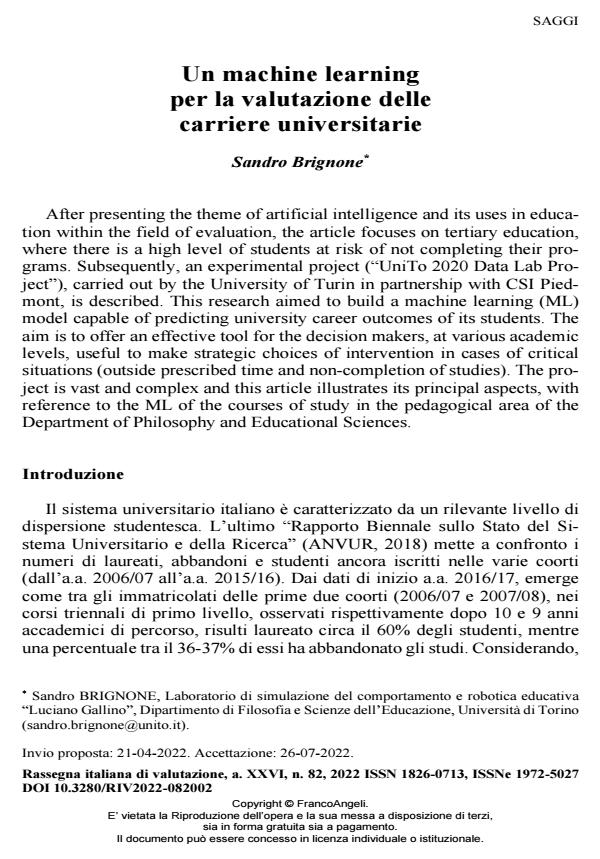Un machine learning per la valutazione delle carriere universitarie
Journal title RIV Rassegna Italiana di Valutazione
Author/s Sandro Brignone
Publishing Year 2023 Issue 2022/82
Language Italian Pages 22 P. 11-32 File size 1083 KB
DOI 10.3280/RIV2022-082002
DOI is like a bar code for intellectual property: to have more infomation
click here
Below, you can see the article first page
If you want to buy this article in PDF format, you can do it, following the instructions to buy download credits

FrancoAngeli is member of Publishers International Linking Association, Inc (PILA), a not-for-profit association which run the CrossRef service enabling links to and from online scholarly content.
After presenting the theme of artificial intelligence and its uses in education within the field of evaluation, the article focuses on tertiary education, where there is a high level of students at risk of not com-pleting their programs. Subsequently, an experimental project ("UniTo 2020 Data Lab Project"), carried out by the University of Turin in partnership with CSI Piedmont, is described. This research aimed to build a machine learning (ML) model capable of predicting university career outcomes of its students. The aim is to offer an effective tool for the decision makers, at various academic levels, useful to make strategic choices of intervention in cases of critical situations (outside prescribed time and non-completion of studies). The project is vast and complex and this article illustrates its principal aspects, with reference to the ML of the courses of study in the pedagogical area of the Department of Philosophy and Educational Sciences.
Sandro Brignone, Un machine learning per la valutazione delle carriere universitarie in "RIV Rassegna Italiana di Valutazione" 82/2022, pp 11-32, DOI: 10.3280/RIV2022-082002